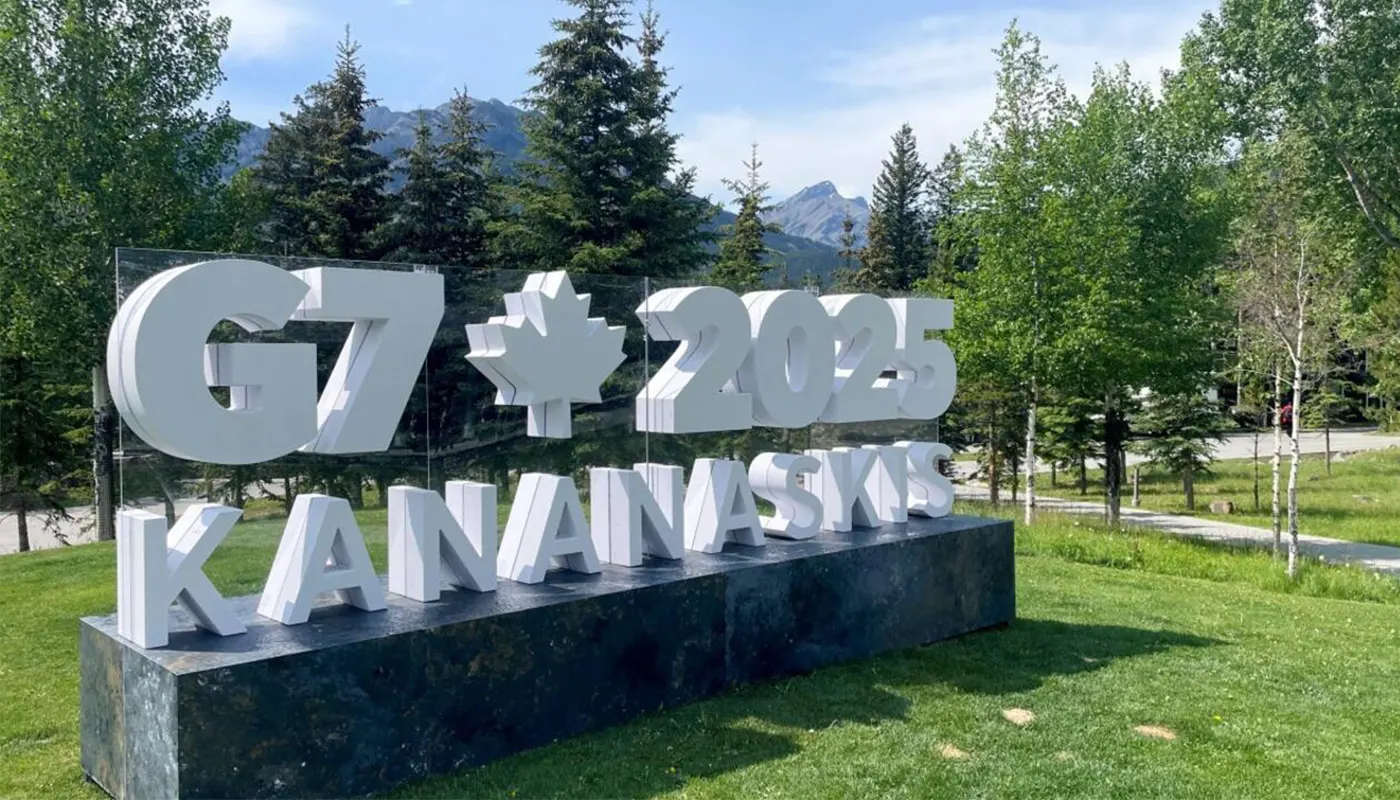KANANASKIS, CANADA – Leaders of the Group of Seven (G7) nations have jointly called for “urgent de-escalation” in the escalating conflict between Israel and Iran, expressing grave concern over regional instability. However, they fell short of demanding a full ceasefire between the two adversaries.
The statement was issued during the G7 summit in southern Italy, where leaders from the United States, Canada, France, Germany, Italy, Japan, and the United Kingdom gathered to address global security and economic challenges. The Middle East crisis dominated the agenda, following weeks of escalating military exchanges and growing humanitarian concerns.
“We urge all parties to immediately take steps to reduce tensions and avoid further regional destabilisation,” the G7 communiqué stated. “A continued spiral of violence will only worsen the suffering and undermine prospects for long-term peace.”
The G7 reaffirmed Israel’s right to self-defence, while also stressing the importance of compliance with international humanitarian law. The leaders expressed concern over civilian casualties in both Israel and Iran, as well as in Lebanon and Syria, where proxy clashes have intensified.
Despite pressure from humanitarian groups and some G7 member nations, the group did not issue a call for an immediate ceasefire, a move that has drawn criticism from international observers.
“We need calm, not escalation,” German Chancellor Olaf Scholz told reporters. “But we also recognise Israel’s right to protect itself.”
French President Emmanuel Macron pushed for stronger diplomatic engagement in the region, proposing the revival of a multilateral peace initiative. Meanwhile, Canadian Prime Minister Justin Trudeau acknowledged the “complex dynamics” at play, calling for a careful and coordinated global response.
The summit’s cautious language reflects divisions within the bloc over how to balance strategic alliances and humanitarian responsibilities.
Middle East analysts say the G7’s position could shape upcoming discussions at the United Nations and influence potential EU sanctions or peacekeeping missions.
The conflict between Israel and Iran has worsened since early 2025, marked by drone attacks, cyber warfare, and retaliatory airstrikes. Civilian infrastructure has been repeatedly targeted, raising alarm over potential war crimes.
As diplomatic efforts continue behind closed doors, the G7’s statement serves as both a signal of concern and a reminder of the global stakes involved in the Israel-Iran confrontation.








